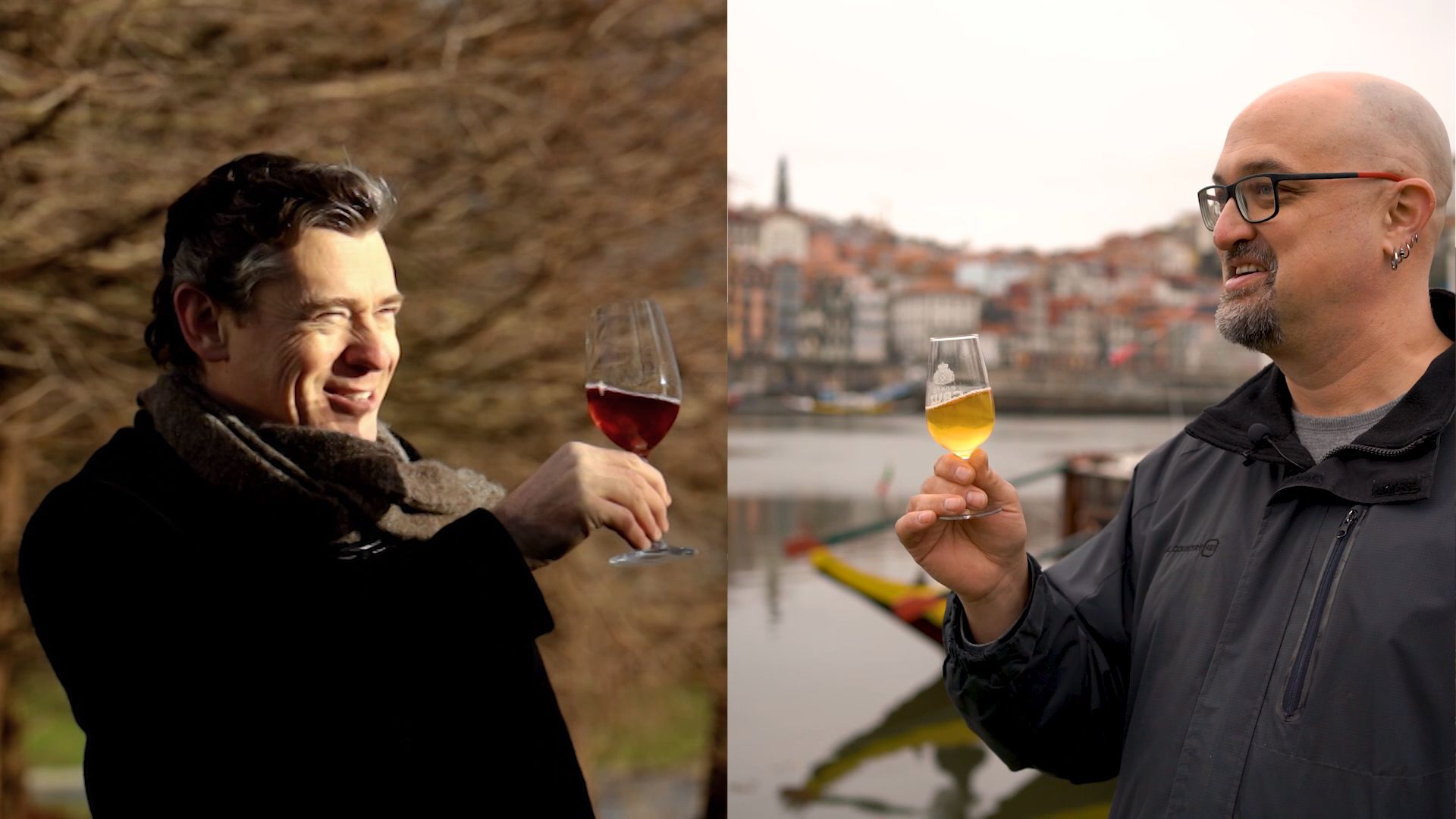If you dedicated a page to every grape variety in Portugal then you have got enough to fill a book, but for Simon Woolf and Ryan Opaz it is the people, the culture, the country’s history and sense of family, community and hard work that they want to show in their new book on Portuguese wine. You can join its Kickstarter campaign to see it published here.
You have teamed up with Ryan Opaz to produce a book on Portuguese wine – how did your partnership come about?
Ryan has been a friend since we met in 2011 at the Digital Wine Communicators Conferences that he used to organise. He really opened my eyes to the diversity and dynamism of Portugal’s winemakers, and engineered a few opportunities to get me travelling to Portugal and its wine regions.
While we were working on Amber Revolution, we started talking about the need for more books about Portuguese wine, written in English. The idea was born out of a few late nights, long discussions, meals and tasty bottles.
What is the pitch for the new book?
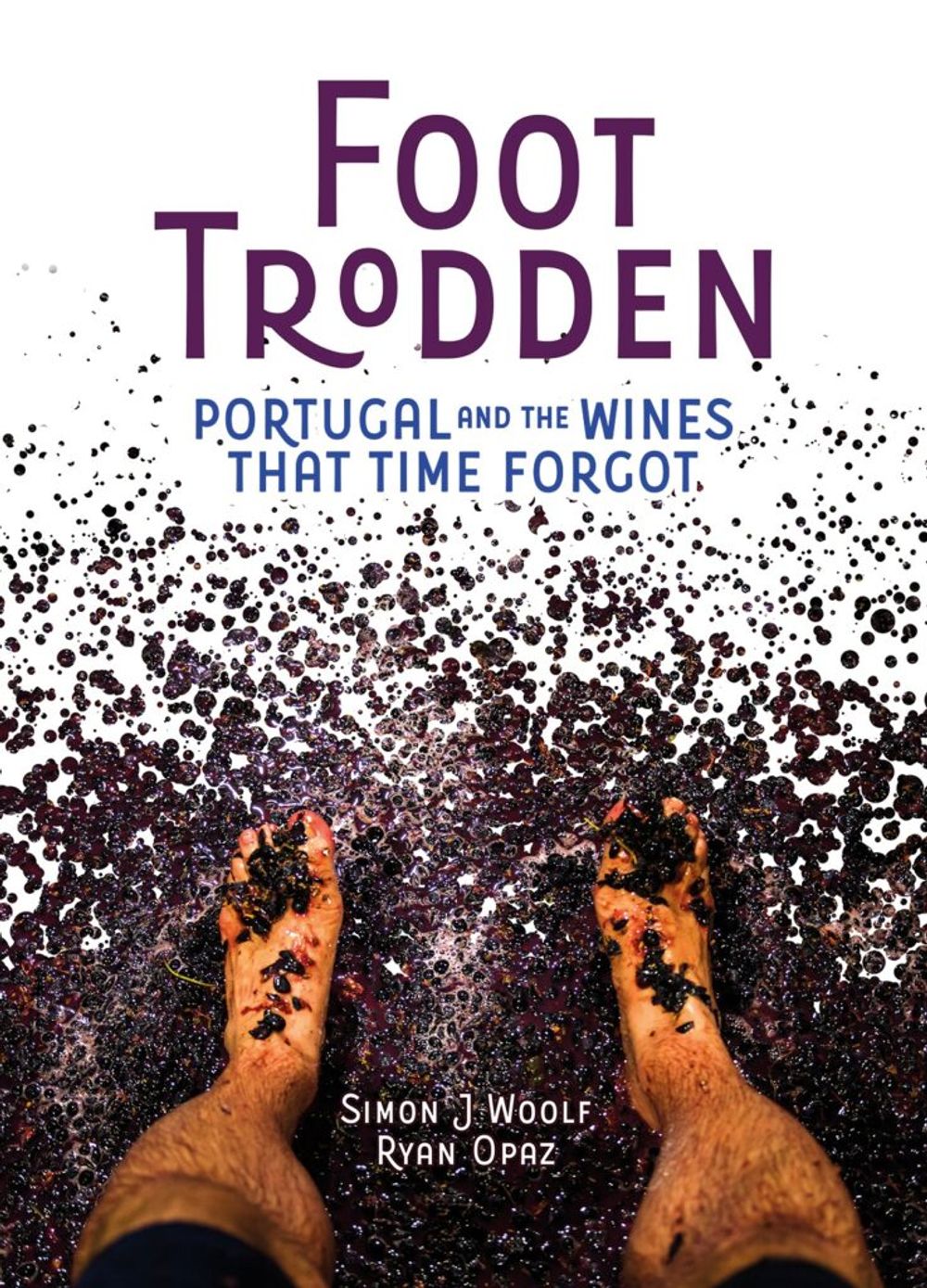
You can help bring this book to life by taking part in the crowdfunding campaign to help raise the money to get it published. Click here to find out more
Simon Woolf: Foot Trodden – Portugal and the wines that time forgot is a narrative and visual deep dive into the Portuguese soul, seen through the lens of wine.
It’s hard to get to grips with Portuguese wine unless you understand the character of the people, and some of the knocks that history has dealt out to the winemakers. So rather than produce a travel guide or a reference work, we wanted to focus more on the narrative of independent winemakers.
We feel that if we can connect the reader with these compelling stories, they’ll walk away with a better feel for Portugal and its wine.
Why do you think Portugal and its wines deserve this level of focus?
Woolf: It’s one of Europe’s most important wine cultures, but often sidelined or misunderstood. If you ask the average US wine consumer about Portugal, they probably can’t point to it on a map, and they may not even realise it’s a separate country to Spain.
When you look at the treasure trove of indigenous grape varieties, the huge diversity of climates, landscapes and wine styles from north to south, and the preservation of traditional winemaking techniques such as foot treading and talhas (amphorae), it is hugely exciting.
Wine geeks ought to be head over heels with Portugal, there is so much great wine being made and so much that is unique, characterful and simply damn tasty.
Ryan, you have made your home in Portugal so it must begood to have this opportunity?
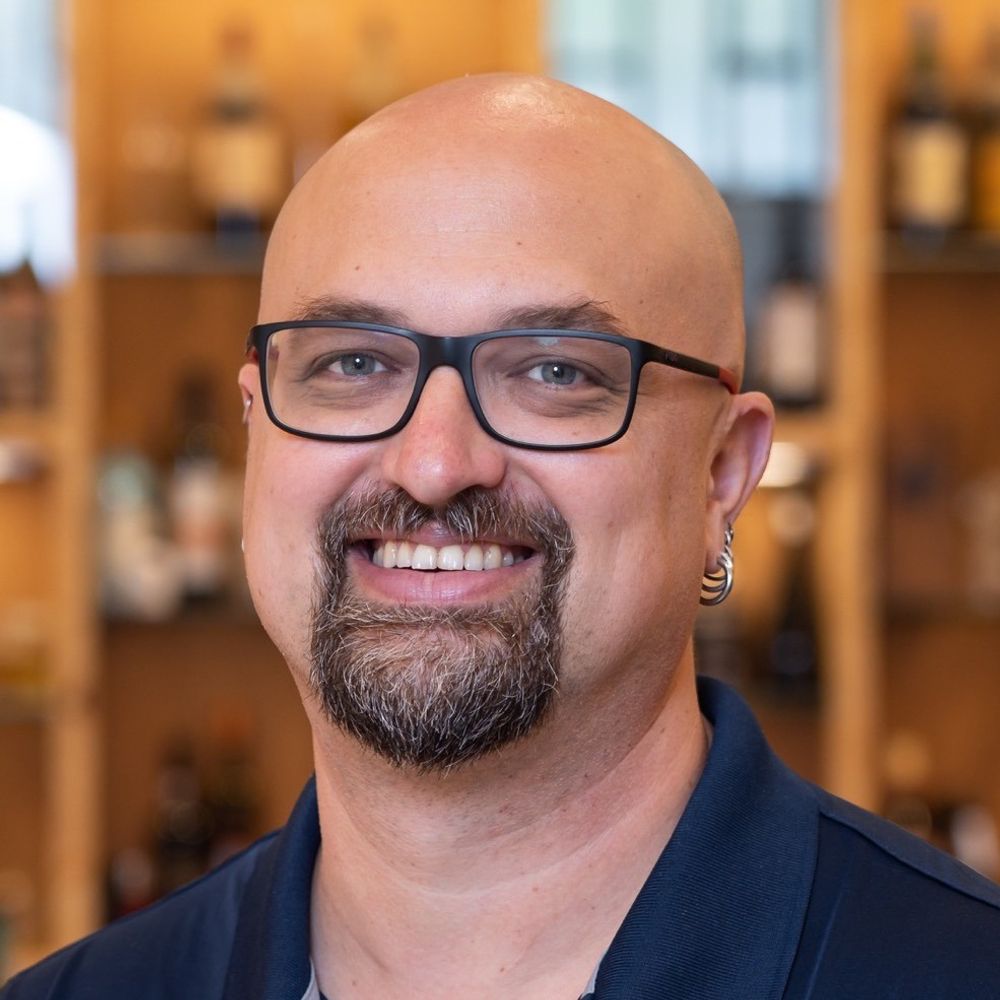
Ryan Opaz, digital consultant and photographer who has made his home in Porto with his family
It is, I have been coming to Portugal since 2003, and made it my permanent home since 2013. That whole time I have been involved in the wine industry in one way or another. But more importantly I’ve seen the wine industry here grow and change during that time. Yet it seems at times to be stuck with the image of port wine and cheap Vinho Verde. I have long wanted to do a book about Portugal, and while my wife and I did a book about the food, I needed to find the right partner to do one about wine.
The number one thing I have learned is that even after almost 20 years of tasting here, Portugal still surprises me. While we were researching this book, Simon and I not only reinforced our love of Portugal, but we discovered stories that seem to be forgotten, not for lack of narrative, but for a lack of storytellers. I’m truly excited to have a chance to finally tell those stories.
Where are you in terms of doing the research and work for pulling the book together?
Opaz: We’ve been working on Foot Trodden for the last three years. We started with a rough idea of the people and the regions we wanted to cover, and then it’s been a slow process of ticking them off as we cover them.
With those winemakers who are our main characters, we’ve needed multiple meetings and sessions to build rapport, get the photos, get the story and then go back and check all the facts.
It got way more challenging last year, but luckily we had the lion’s share of the work already in the can. And we’ve continued with zoom interviews and so forth, where there was no other solution.
Anything that has surprised/stood out to you so far in terms of the quality/ changes in Portuguese wine?
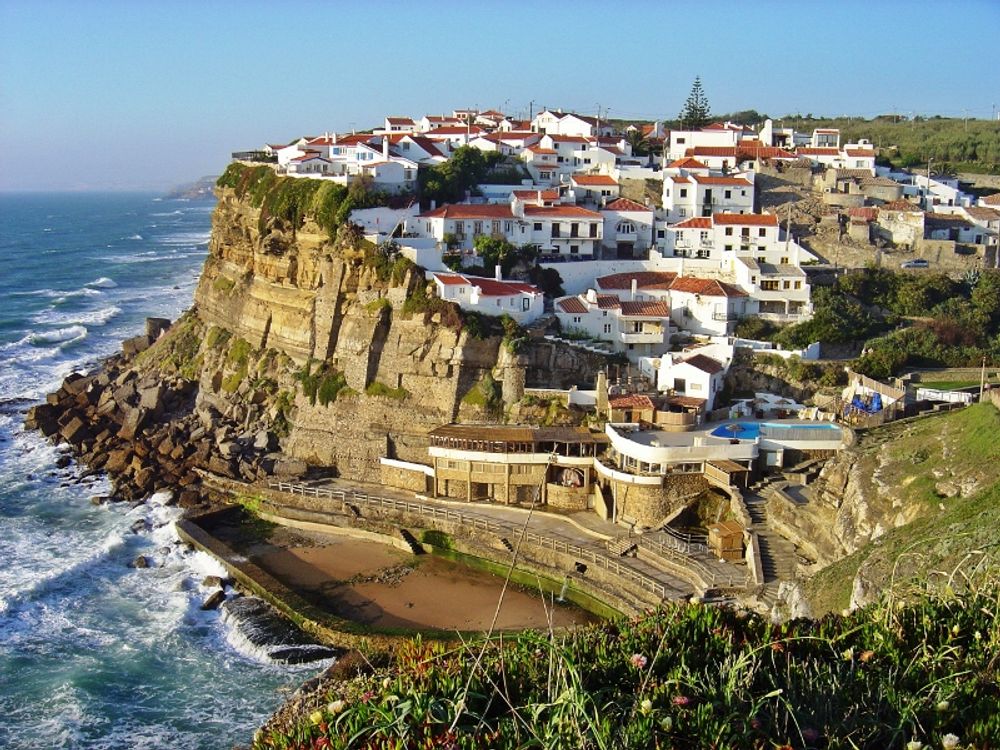
Colares – where the vines snake across the beach – has a story that just has to be told says Ryan Opaz
Woolf: It’s been really welcome for me to see much more focus on organic viticulture and also on more minimal intervention winemaking.
Compared to a decade ago (roughly when I started tasting Portuguese wines seriously), there are so many newer or younger producers focused on freshness, lightness and purity – the 1990s idea of overripeness and loads of oak is thankfully receding into the past.
The ethos of natural wine is, I think, perfect for Portugal because it’s filled to bursting with idiosyncratic grape varieties and oddball wine styles. These deserve to be celebrated as part of Portugal’s heritage, and not just consigned to the “curiosities” bin.
Opaz: I would agree with Simon that the desire to look at more sustainable farming and winemaking methods has been a welcome change. And while there is a long road ahead, when you have companies like Esporão converting their entire vineyards to organic, you know something important is happening.
One of the biggest changes that I see is more pride locally in the wines. When I first started traveling here you would often compliment a winemaker and have them respond with a “Thank you, yes, but we’re no…(insert any other region)…”
Today you see more people taking pride in Portugal’s uniqueness and not worrying about whether their wines are right for the x, y or z consumer market. With sommeliers making wines like Colares their darlings, I feel like there is a new found pride that is allowing more people to return to unknown grapes, little known traditions and forgotten terroirs.
Will it be a region by region guide – or producer by producer – what’s the narrative?
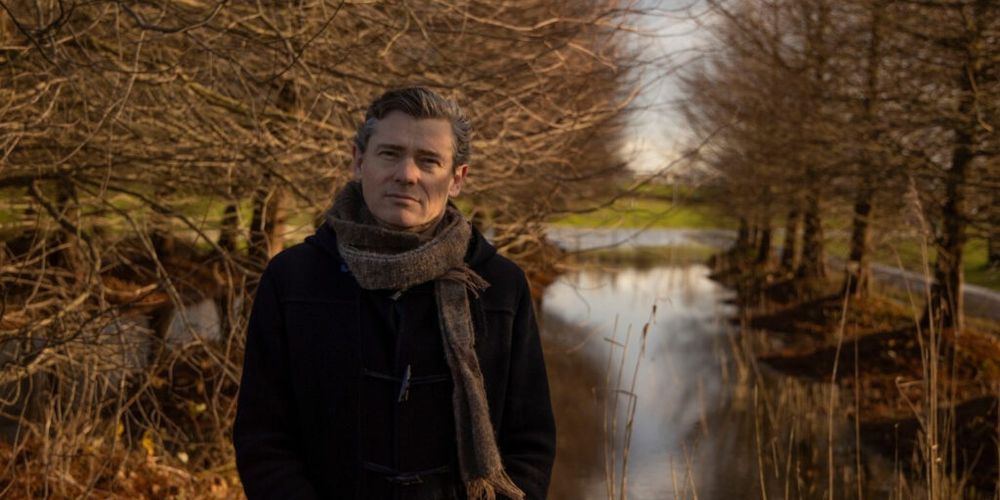
Simon Woolf had great success with his first book – the Amber Revolution – on orange wine which he also published thanks to a crowdfunding campaign
Woolf: Each chapter tackles a different region, but it’s not a conventional wine guide. We’re focusing on a small number of winemakers who we feel are in some way inspirational, influential or just have a good story to tell.
It’s about the story and the journey, far more than attempting to be an exhaustive guide.
There is a lot of focus on why it’s such a key moment right now in Portugal. We talk a lot about how Portuguese winemakers were kept “under the thumb” by the government and by constructs such as the cooperatives or the Port Wine Institute (IVDP). It’s amazing to think that most of the smaller, independent wineries in Portugal not only didn’t exist 30 years ago, but also would not legally have been allowed to sell wine direct to the consumer.
One of the key themes with Portugal is the whole old and new juxtaposition – how wine is part of Portugal’s history but also its future.
Most importantly, this book is meant to be an easy read for anyone from a wine geek to someone who just loves a good story and has a fondness for Portugal.
Who do you see as the main target audience for the book ?
The main target audience is wine lovers, not just those who already discovered Portugal, but also those who didn’t yet get to grips with the country. The book will also appeal to anyone who has a connection with Portugal in general, or anyone with an interest in modern social and cultural history. If you like wine too, then it really is win win win.
The photography and imagery is clearly a key aspect to this – Ryan what is your approach to photography and what do you hope your photographs can do for the book?
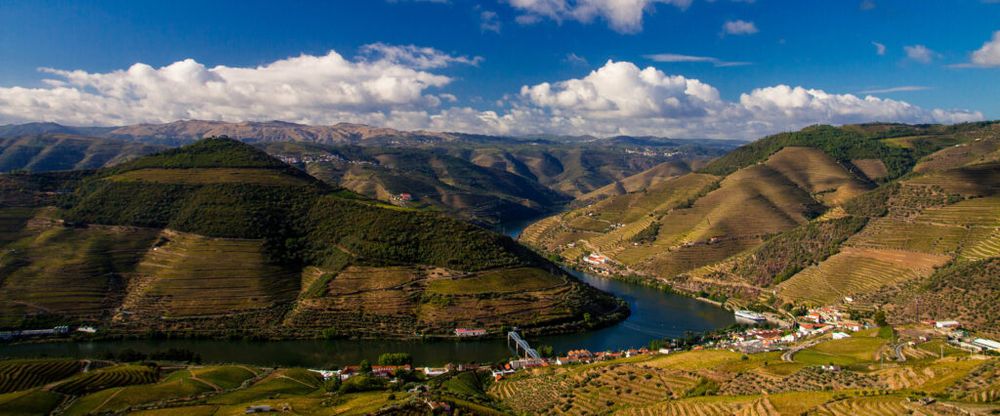
An example of Ryan Opaz’s photography that he has used to help promote the Catavino tourism, food and wine platform he runs
I’m not sure I have an easily defined approach, I just want my photos to do justice to the places and people we encounter and help to illustrate their stories. I often find the photos I plan out are the ones that never make the book, but the random shot from the hip may end up being the one we love.
For me photos create an atmosphere, even more than they illustrate stories. I want the photos to help set the mood and allow you to feel like you’ve been to the places we talk about. The ambiance created by the photos should help the stories feel more real and textured.
You are looking to self publish the book – how do you go about doing that?
(Watch the promotional video by Simon Woolf and Ryan Opaz on Kickstarter for their crowdfunding campaign)
Woolf: First we have to raise the money, so we’re crowdfunding the book via Kickstarter. It’s pretty terrifying due to the “all or nothing” funding model. It’s like a warped popularity contest where you stand up and shout “hey everyone, do you care enough to help us make this happen?”
But, on the other hand, we really like it because it creates buzz and either proves or disproves the validity of the whole project.
If our crowdfunding campaign is a success, we know even before the book’s printed that it has an audience. That’s a great feeling.
Once the funding is in place, the process is much the same as with a publishing house. We employ a team of designers and a copy editor, and the book progresses from content creation to editing to layout and design. And then finally it’ll go to press in the summer, and we hope we’ll be shipping it out to Kickstarter supporters around the end of August.
How can people support you?
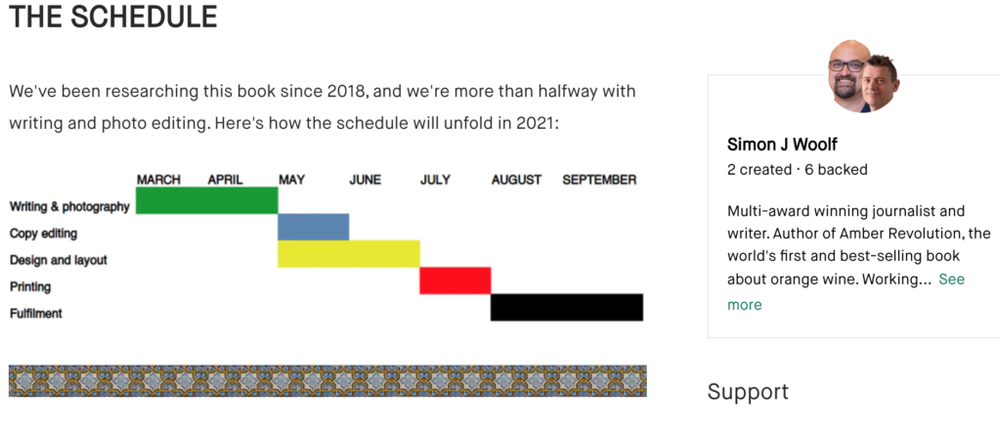
The Kickstarter page includes comprehensive details on what the money raised will be used for, what investors can get on top of their funding and how it is all going to work
Woolf: Mainly by supporting our Kickstarter campaign which just went live on February 18. We really cannot bring this book into being without everyone’s financial support. Everyone who pre-orders even one book via Kickstarter will have their name printed in the final book, on the acknowledgements page, as our thank you for your help.
Even if you are not ready to put your money down, sharing our campaign and our project with others around the world who might be interested is also really, really helpful. Social media is a really powerful tool to connect with people who don’t yet know about the project.
How will you promote it when it is out?
Woolf: The great thing about Kickstarter is that, if it’s successful, it takes care of a lot of our promotion because we’ve already pre-sold a substantial number of books.
But beyond that, we’ll do all the usual stuff – sending out review copies, and hopefully some actual real-life tastings and events where we can meet other wine fans and share our enthusiasm for Portugal. We just need the world to get back to a new normal as soon as possible.
- If you would like to support the publication of Foot Trodden then go to its Kickstarter fundraising page here.
